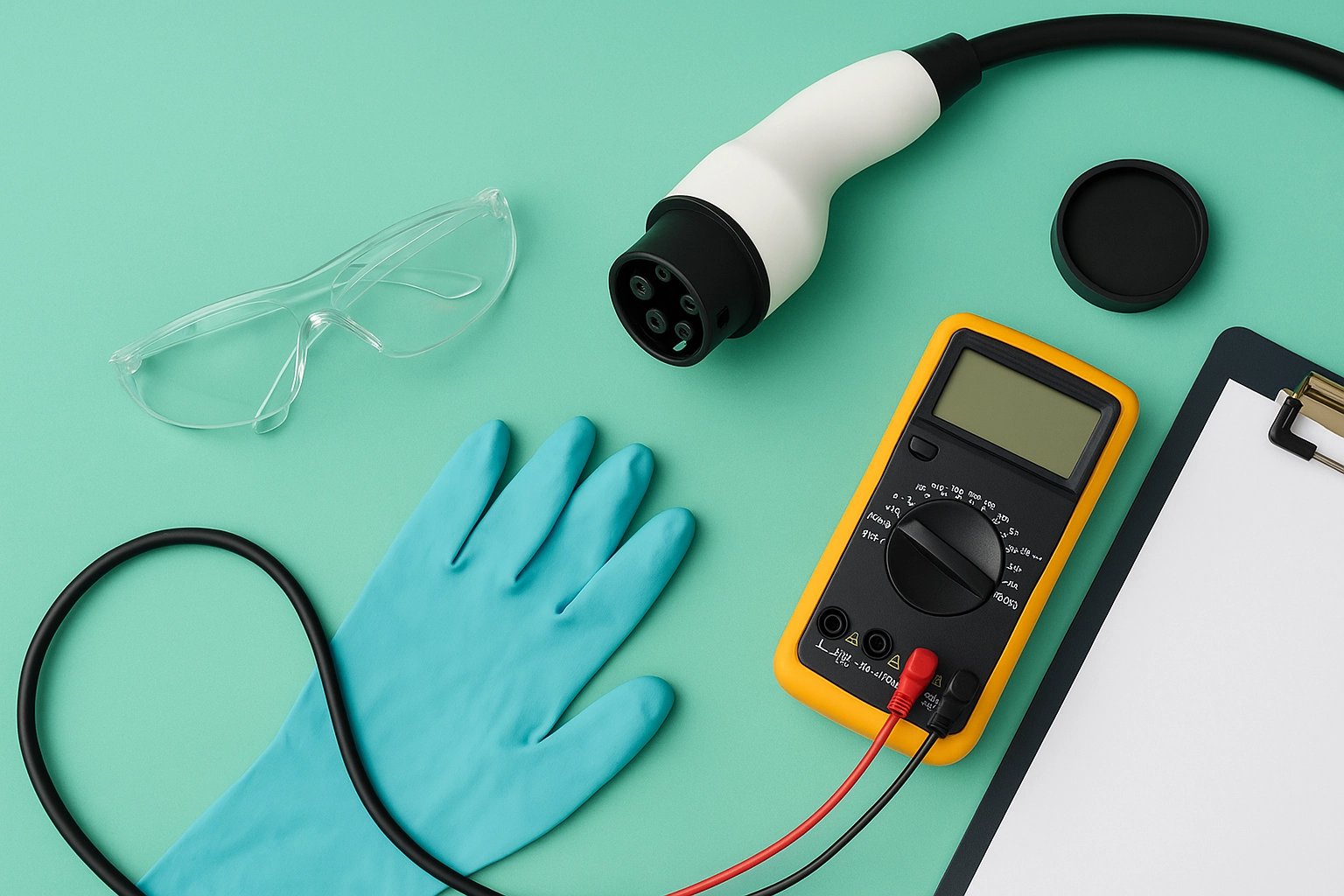IEC 62955 Residual Current Monitoring for EV Charging Test
The IEC 62955 standard is pivotal in ensuring that electric vehicle (EV) charging systems are safe and reliable. This standard focuses on the residual current monitoring of EVSEs, which is essential to prevent electrical malfunctions that could lead to fires or other hazards.
Residual current monitoring plays a critical role in safeguarding both the equipment and users connected to an EV charging station. By continuously monitoring the residual current, the system can detect any imbalance between incoming and outgoing currents, indicating potential faults such as insulation breakdown or short circuits. This proactive approach ensures that issues are addressed before they escalate into dangerous situations.
The standard outlines the requirements for residual current monitors used in EVSEs to ensure they meet specific performance criteria. These include accuracy, sensitivity, and stability under various operating conditions. Compliance with IEC 62955 is mandatory for manufacturers aiming to sell their products in markets that adhere to this standard.
Testing according to IEC 62955 involves several key steps aimed at validating the functionality of residual current monitors within EVSEs. The process begins by selecting appropriate test specimens, which are representative of real-world scenarios encountered during charging operations. This includes varying load conditions and environmental factors that may affect performance.
The testing apparatus used for this purpose typically comprises an adjustable power supply capable of simulating different charge rates, a residual current monitor under test, and monitoring equipment to record data points throughout the test sequence. The apparatus must also be equipped with safety features to protect both the tester and the specimen during operation.
During the testing process, several critical parameters are monitored and evaluated against predefined acceptance criteria specified in IEC 62955. These include the accuracy of current measurement, response time to fault conditions, and overall stability over extended periods. Additionally, the system’s ability to differentiate between normal operational conditions and genuine faults is crucial for ensuring reliable performance.
Given the importance of residual current monitoring in EVSEs, thorough testing according to IEC 62955 ensures compliance with international standards while enhancing user safety. It enables manufacturers to demonstrate adherence to industry best practices and regulatory requirements, thereby building trust among consumers.
| Applied Standards | Description |
|---|---|
| IEC 62955:1 | Residual Current Monitoring for Electric Vehicle Supply Equipment (EVSE) |
| EN 60364-7-702:2018 | Protective devices for low-voltage systems - Particular aspects of residual current operated protective devices and their tests |
| Scope and Methodology | Description |
|---|---|
| Testing Equipment | Adjustable power supply, residual current monitor under test, monitoring equipment |
| Test Conditions | Varying load conditions, environmental factors |
| Data Collection | Accuracy of current measurement, response time to fault conditions, overall stability over extended periods |
Applied Standards
- IEC 62955:1 - Residual Current Monitoring for Electric Vehicle Supply Equipment (EVSE)
- EN 60364-7-702:2018 - Protective devices for low-voltage systems - Particular aspects of residual current operated protective devices and their tests
Use Cases and Application Examples
- Ensuring safety during EV charging operations by detecting potential faults early.
- Meeting regulatory requirements for EVSE manufacturers operating in markets that adhere to IEC 62955.
- Demonstrating compliance with international standards, enhancing consumer trust and satisfaction.
- Providing a foundation for continuous improvement of EVSE design and functionality based on real-world testing data.





